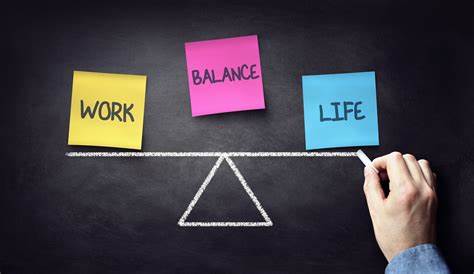In today’s fast-paced world, achieving a healthy work-life balance can feel impossible. With constant demands from work, family, and personal goals, we’re often left feeling depleted and overwhelmed. However, finding balance is essential for both mental and physical well-being. Here’s how you can start building a work-life balance that truly works for you.
1. Understand What Work-Life Balance Means to You
Work-life balance doesn’t mean splitting your time equally between work and personal life. Instead, it’s about creating a sustainable mix that fits your needs. Balance looks different for everyone—it might mean more time with family, space for hobbies, or having clear boundaries around work hours. Start by defining what a balanced life looks like for you personally.
2. Recognize the Signs of Imbalance
Feeling out of balance can sneak up on us. Here are some common signs:
- Constant Fatigue: If you’re always tired, it could mean you’re pushing yourself too hard without proper rest.
- Difficulty Disconnecting: If you’re always thinking about work, even during personal time, it’s a sign you may need clearer boundaries.
- Loss of Interest in Hobbies or Relationships: When work is all-consuming, it’s easy to lose touch with friends, family, and personal passions.
- Physical Symptoms of Stress: Tension headaches, trouble sleeping, or even digestive issues can indicate stress from work-life imbalance.
3. Set Clear Boundaries
Boundaries are essential for protecting your time and energy. Here’s how to set and maintain them:
- Define Work Hours: Even if you have a flexible schedule, set start and end times. This helps you prioritize both work and personal time.
- Create “No Work” Zones: Designate areas at home as work-free spaces—like the dining room or bedroom—to mentally separate work from relaxation.
- Communicate Your Boundaries: Let coworkers or supervisors know when you’re available and when you’re not. Don’t hesitate to turn off notifications or silence work-related apps outside of hours.
4. Prioritize Your Well-Being
Your well-being fuels both personal happiness and productivity. Here are a few ways to nurture it:
- Incorporate Breaks: Taking short breaks throughout the day can refresh your mind and improve focus.
- Make Time for Exercise: Physical activity is one of the best ways to reduce stress. Whether it’s a morning run, a lunchtime walk, or an evening yoga session, schedule it as you would a meeting.
- Practice Self-Care: Regular self-care, like reading, meditating, or spending time with friends, can help reduce stress and keep burnout at bay.
5. Embrace Flexibility and Set Realistic Goals
A rigid schedule can backfire, making you feel even more stressed. Embrace a bit of flexibility in your routine:
- Set Realistic Daily Goals: Prioritize your most important tasks and allow yourself extra time for unexpected demands.
- Accept That Balance Is Fluid: Work-life balance isn’t static—it changes based on life events, work demands, and personal needs. What works today may need adjusting tomorrow
6. Make Use of Technology Wisely
While technology can increase productivity, it can also lead to overwork. Here’s how to make it work for you:
- Use Apps for Time Management: Apps like Google Calendar or Trello can help organize your tasks without overwhelming you.
- Set Tech Boundaries: Disable work-related notifications after hours or use “Do Not Disturb” modes to keep your evenings and weekends free.
7. Seek Support
Creating a work-life balance isn’t something you have to do alone. Talk with friends, family, or mentors about your struggles and successes. They might offer useful advice or remind you when you’re getting off track. Some workplaces even offer resources like employee assistance programs or flexible scheduling to support a healthier balance.
Finding work-life balance takes time and trial and error. Small, intentional changes can help you create a routine that supports both your work responsibilities and personal well-being. By setting boundaries, prioritizing self-care, and seeking support, you’re taking meaningful steps toward a balanced and fulfilling life. Remember, balance is not about perfection—it’s about making the time to enjoy all aspects of your life.




